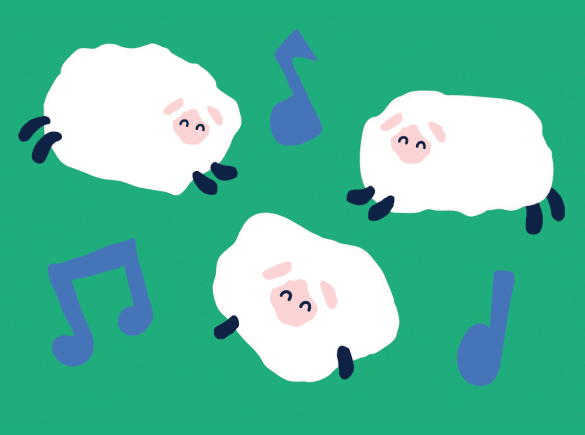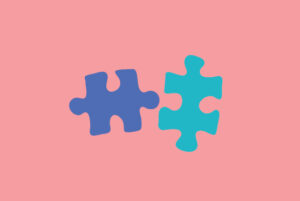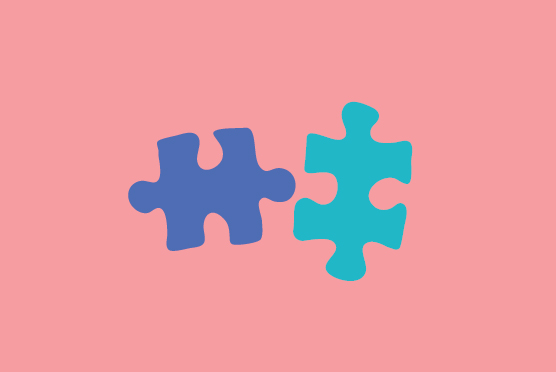Inside this article
If sleep deprivation has you wondering if singing lullabies or playing sleep music for your kids is worth the effort, read this.
Our lives as parents are divided into two parts: before and after children. Attempting to soothe our infants to sleep with a lullaby is something a Babylonian tablet from 2000BC confirms we’ve been doing for millennia. Of course, just because we’ve been doing something for thousands of years doesn’t mean we need to stick with it. But there is a growing body of evidence that helps us understand why lullabies have been part of sleep routines for so long.
Let’s take a look at what the experts say about the science behind the magic of music, so you can decide whether to go all in on your next verse of Twinkle, Twinkle.
We’ll cover:
- How and why lullabies work for babies
- The impact of lullabies and sleep music on toddlers and children
- Whether your choice of sleep songs and lullabies matters
- Benefits of lullabies and songs beyond sleep
Do lullabies help children sleep?
The short answer here is, yes. Research suggests that when you sing to your baby or child, it has a calming effect which helps them to sleep. Understandably, this is a huge area of scientific interest with research that links lullabies with positive effects on mind and body, for parents and children. There’s also evidence to show there are benefits to playing music or lullabies at bedtime.
Why do lullabies work?
The lullaby rhythm womb theory
Try singing a few lines from your favourite lullaby right now. What do you notice? Did you slow down or move while you sang? Lullabies tend to follow a similar rhythm with a triple meter, which mimics rocking or swaying. In this way, the sound and motion of lullabies replicate the movement babies feel in the womb. This familiar, comforting motion can act as a sleep cue.
So far, so good. But what we really need to give a sleepy nod to here is the science-backed physiological power of the lullaby.
The physiological impact
One 2010 study involving babies in an intensive care unit showed that listening to lullabies actually improved babies’ oxygen and respiration levels. Another larger 2013 study of intensive care babies showed that listening to lullabies had even more of a positive impact when the songs were sung by the babies’ parents.
In the study, singing to infants lowered their heart rates, suggesting babies felt less distressed. Babies’ sleep, feeding behaviours, and sucking patterns also improved, along with better breathing. One other interesting revelation is that singing lullabies was found to lower parents’ stress levels, too.
The parent’s voice is the sweetest sound
Even if your singing voice makes you cringe, chances are it’s the sweetest sound for your baby. Science says so.
Another study of babies in intensive care examined the effects of playing recordings of a mother’s lullaby versus Mozart’s lullaby. The research found the mother’s lullaby improved baby feeding and gave other positive physiological impacts compared to Mozart’s lullaby.
Do lullabies help toddlers and children to sleep, too?
A study at Great Ormond Street Hospital involving 37 patients aged from newborn to age four further supports that lullabies have a calming impact that improves sleep. After listening to lullabies, participants’ heart rates were lower. The youngsters also showed less anxiety and reduced pain perception, perhaps due to endorphins released during the musical interlude.
In the study, children also listened to bedtime stories, but the same benefits weren’t observed after storytime. This suggests the improvements were due to the singing of the lullabies rather than a simple result of adult attention.
What about using sleep music for children?
Sleep music for all ages is a huge area of research, but there’s some good evidence to show it’s worthwhile introducing music to make kids sleepy. A 2004 study of elementary school-age children in Taiwan examined the impact of background music playing during nap times and bedtimes. Researchers noted improvement in how long children slept and their ability to sleep with music playing.
Does your choice of lullaby or baby sleep music matter?
Wondering if you can get away with softly singing your favourite songs rather than learning a traditional lullaby? There are a few things to take note of when it comes to choosing lullabies and sleep-inducing music.
Happy and sad lullabies
Research by the University of Dundee looked at responses to music with babies who were just a few days old and found that happy songs send babies to sleep. In the study, one group of babies listened to a song that had been pre-defined as sad. Another group of infants listened to a lullaby that scientists classified as happy, and there was also a control group with no music.
The babies who listened to music moved their fingers and toes more than the control group.
When babies listened to happy music, their arousal levels were lower, and their heartbeats slowed. They also delayed self-regulatory behaviours like sucking and shifted from drowsiness to sleep.
The results suggest we have an early emotional connection with music. And when it comes to song choices, babies may prefer you to soothe them with a happy song.
Worldwide lullabies
In news that will please you if you regularly find yourself making up lullaby lyrics, research from Harvard’s music lab suggests you don’t need to stick to singing familiar songs. Or even performing in a familiar language for lullabies to make an impact.
In the study, babies listened to 16 songs and lullabies from around the world while researchers observed their movements. They noted things like blinking, gaze direction, and pupil dilation to assess relaxation levels. The researchers also monitored heart rates and skin changes.
The study showed that babies relaxed more to lullabies than other songs. This was true regardless of whether babies heard lullabies in their native or an unfamiliar language.
Things to consider while you’re warming up your voice
So far, we’ve focused on the noted physiological improvements and sleep-inducing power of songs and lullabies, but it’s also worth thinking about the bonding experience of singing to your child. Scientists also suggest that lullabies, nursery rhymes, and sing-song language have an essential role to play in stimulating language development. This is why you can really hit the mark with all the repetition in your rendition of Twinkle, Twinkle.
How to use lullabies effectively (without creating sleep problems)
Lullabies work best when they’re used intentionally, as part of a predictable bedtime routine rather than as background noise or a quick fix for overtiredness. Used this way, they support sleep without creating long-term sleep issues or dependencies.
Keep it simple and consistent
Choose one or two songs and use them regularly. Repetition helps the brain form a strong association between that sound and sleep. Constantly changing songs or playlists can be more stimulating than calming.
Live singing beats recordings (but both can help)
Research suggests a parent’s voice has the strongest calming effect, particularly for babies. That doesn’t mean recordings are unhelpful — they can still support relaxation — but if you’re singing, your voice, rhythm and presence add an extra layer of regulation.
Think low, slow and quiet
Lullabies work because they are slow, rhythmic and predictable. Sing or play music softly, at a steady pace. Avoid upbeat melodies, dramatic key changes, or anything that might pull your child into alert listening rather than rest.
Use lullabies as a wind-down cue, not all-night sound
It’s usually most effective to sing or play music during the settling phase, then fade it out as your child becomes drowsy. Constant music playing through the night isn’t necessary for most children and can sometimes interfere with natural sleep cycles.
Pair music with a clear boundary
Lullabies are most powerful when they come after the same sequence each night (for example: pyjamas, teeth, story, song, bed). This helps children experience the song as a signal that sleep is coming, not a negotiation or delay.
You won’t “create a bad habit”
Parents often worry that singing every night will make sleep impossible without it. In reality, consistent sleep cues tend to reduce bedtime struggles over time. Children naturally become more flexible as their self-regulation improves, and sleep associations can be gently changed later if needed.
Trust regulation over perfection
If some nights you sing and others you hum, whisper, or play a recording, that’s fine. What matters most is the calm, predictable tone and emotional safety you bring — not musical ability or rigid rules.
Used thoughtfully, lullabies don’t interfere with independent sleep. They support it, by helping children feel safe, regulated, and ready to rest.
Conclusion
There’s a lot more research needed, but scientific studies suggest that lullabies support better sleep for babies and children. Put simply, parents around the world have been singing their children to sleep because it works. Perhaps not instantly, maybe not in every situation, but it’s definitely worth warming up your voice.
Reviewed and updated on 19 February 2026









